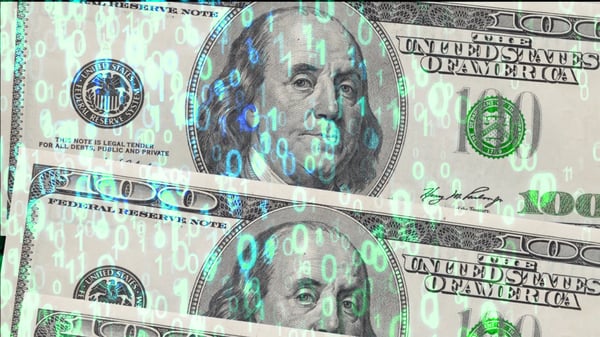
I’m intrigued by Bitcoin and other cryptocurrencies, but like many other people, I’m not sure I “get” them. Conceptually I understand the attraction of a decentralized currency where the government can’t stick its nose in, and it’s impossible to cook the books or cheat due to the transparency afforded by a distributed ledger supported by blockchain technology. I think that eventually the world will move toward a totally digital monetary system, but we’re not there yet.
At this point Bitcoin and other digital currencies have a number of serious flaws that may be very difficult to overcome. The first is a matter of trust. As I said, I’m very interested in what’s happening with cryptocurrencies, but I’m not interested enough to put any of my own hard-earned money into the crypto space. Bitcoin is the best example to use, because it’s still the dominant crypto. But what’s a Bitcoin truly worth?
Why is Bitcoin Worth Anything?
In December 2017 the trading price for a single Bitcoin was close to $20,000 and a year later it was around $3,300. The price has come up slightly in 2019, but what does that mean? One of the hardest things to grasp about Bitcoin is why a group of computers, called miners, which managed to solve a complicated mathematical problem faster than any other group of computers should as a result receive a digital token whose value can widely fluctuate. Why that should create something of value has never made any sense to me.
But apparently those difficult math problems are only there as “proof of work” so that miners can’t cheat the blockchain. That’s just one of the things I learned from a fascinating new book recommended by a client that helped me understand what’s going in the cryptocurrency space a little bit better. In Beyond Blockchain: The Death of the Dollar and the Rise of Digital Currency, Erik Townsend provides a brief history of money and outlines why none of the existing cryptocurrencies are likely to replace the U.S. dollar as the world’s reserve currency. He believes that a true digital currency will arrive at some point, but that the technology isn’t there yet.
Townsend also criticizes Bitcoin speculators “who confused value with price and failed to recognize the risks inherent to speculating in a currency that could face serious (read: existential) legal challenges in the near future.”
That last point is another way of saying that Bitcoin and other cryptocurrencies only exist because the U.S. and other governments let them. That doesn’t mean that the U.S., China, Russia or some other government isn’t going to use the crypto world’s technology to issue a government-backed digital currency. Throughout history, government entities have solely been responsible for issuing money and there’s no reason to believe that won’t continue to be the case even if we get to the point where there are no more coins or bills.
I understand that the U.S. dollar is a fiat currency and has no gold reserve, with only the full faith and credit of the U.S. Federal Reserve behind it, but that’s still a pretty substantial guarantee. When I buy something online or in a store with my credit card, no money is changing hands, but it’s not really a digital payment since the bill will be settled in dollars credited to that business’s account. There is no similar credible entity backing the value of Bitcoin, which is just one of the reasons the trading price fluctuates so dramatically. And to spend a Bitcoin or even a satoshi—the smallest unit into which a Bitcoin can be divided (0.00000001BTC)—you first need to convert it back into dollars, euros, or some other universally recognized money.
The Future of Digital Currency
While we’re waiting for the development of a true digital currency, Zeynep Tufekci, an Associate Professor at the UNC School of Information and Library Science, hopes we can at least get to the point where she will no longer need to pay with cash, or even fill in online forms with her credit card information before buying something. In a recent Wired article she laments that the internet has still not created the seamless micropayment system that its creators envisioned. They even created a still-unused error code for it—402 Payment Required—to go along with the more familiar “401 Unauthorized” and “404 Not Found” which we’ve all probably seen thousands of times by now.
I agree with Dr. Tufekci’s observation that Bitcoin is not going to be the answer to this problem and I too would welcome a seamless micropayment system for the internet. In the meantime, while I eagerly await the next developments on this front, I think I’ll just stick with cash, check, or credit card.
Click the link below for more information about the future of digital currency:





Let’s Connect
Ready to build, grow, manage and protect your brand? Complete the form below to discuss how we can help.